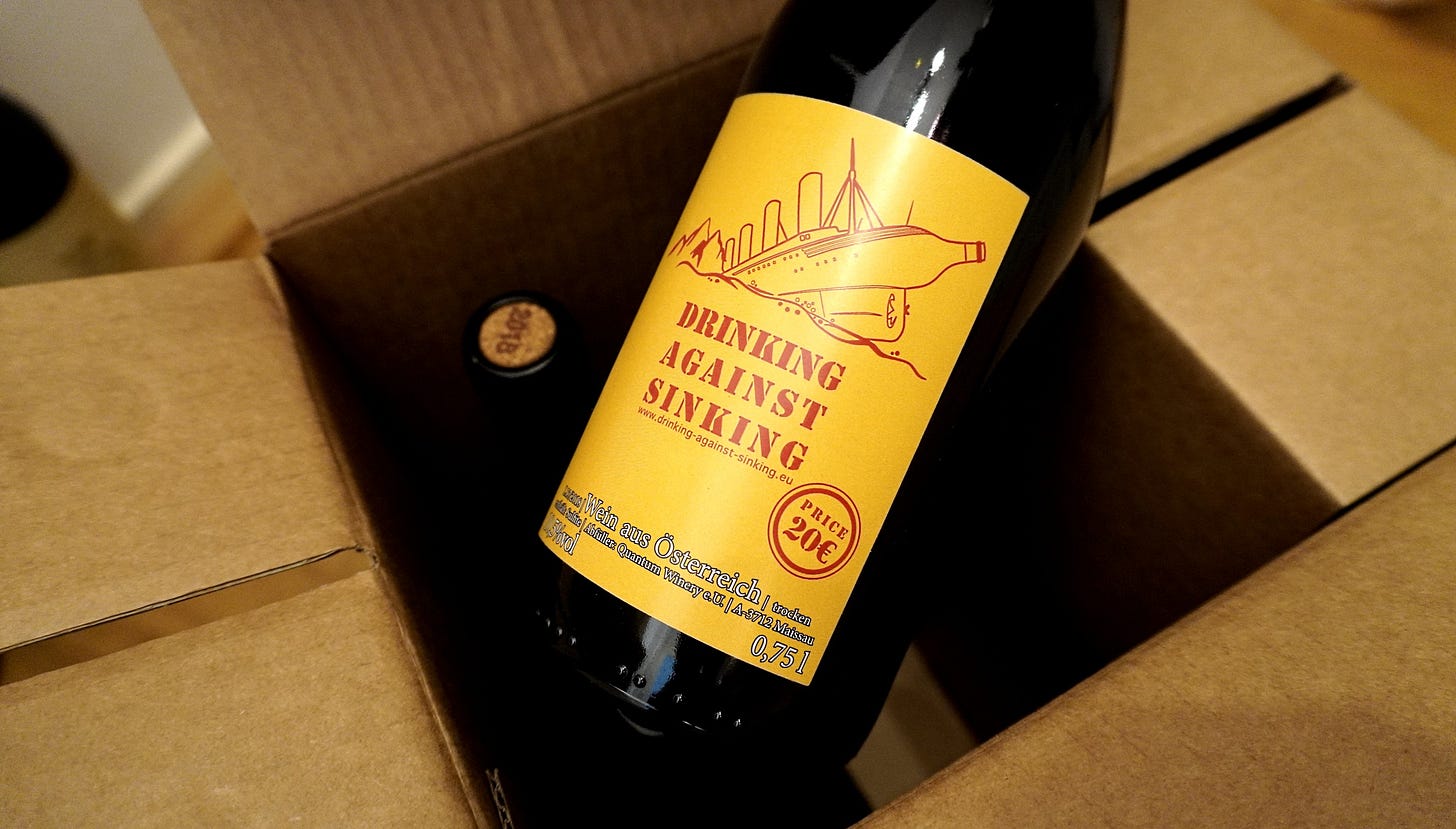Why you should support Drinking-Against-Sinking
What would you do if the entire economic backbone that supports your business looked like it could collapse? Some might throw in the towel, but not Florian Schuhmann-Irshik (Quantum winery). A young winemaker based in Austria's Weinviertel, Schuhmann watc

What would you do if the entire economic backbone that supports your business looked like it could collapse? Some might throw in the towel, but not Florian Schuhmann-Irshik (Quantum winery). A young winemaker based in Austria's Weinviertel, Schuhmann watched as the Covid-19 pandemic unfolded around him, and then decided to act. He came up with a simple, de-centralised concept that allows winemakers to support the ecosystem that they depend on to sell their output.
Drinking-Against-Sinking is in fact so simple that I thought I must have missed something at first. But then I listened into a video conference held by Florian and half-a dozen fellow winemakers last Saturday. Not only was the strength of the community impressive, the penny also dropped. Here's how the scheme works in a nutshell:
Winemakers download the Drinking-Against-Sinking label from the website, and then label/bottle one or more wines (the quantity is up to each winery) with it.
The wines are sold for a minimum price of …
Keep reading with a 7-day free trial
Subscribe to The Morning Claret to keep reading this post and get 7 days of free access to the full post archives.




